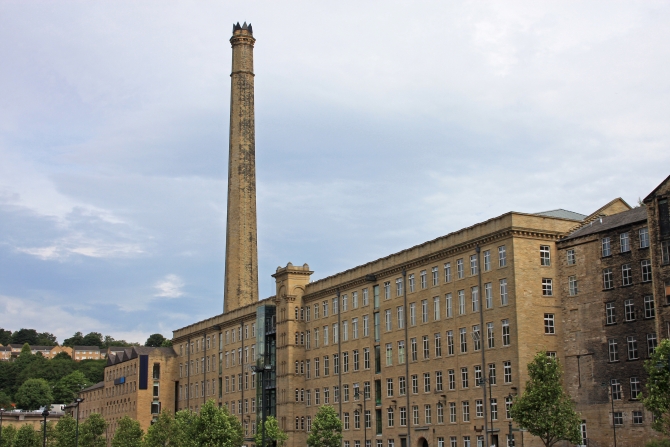One of Britain’s biggest business communities — housed in what was once the world biggest carpet factory — is to get another 75,000 sq ft of office space.

Work will start next month to convert that last two derelict mills on the 22-acre Dean Clough site at Halifax, West Yorkshire, into the new headquarters for Covéa Insurance, the UK underwriting business of French mutual insurance group Covéa.
The Dean Clough complex at Calderdale is made up of a group of large factory buildings — half-a-mile long and covering 1.25m sq ft — completed during the two decades to 1860 for Crossley’s Carpets.
After years of decline the plant closed in 1983, when it was bought by a consortium led by Sir Ernest Hall and which transformed the Grade II listed site into a commercial and cultural hub. The two insurance buildings were originally built between 1841 and 1844 and have been unused since the early 1950s.
Today Dean Clough houses more than 140 businesses, including numerous retail and leisure enterprises. It is also one of Yorkshire’s most prominent arts centres with galleries, a theatre and performance studios and a local radio station is based in one of the smaller mill buildings. A Travelodge and a National Health Service facility use buildings at the western end of the site.
Sheffield-based contractor and developer JF Finnegan has been awarded a 12 month contract to refurbish the two mill buildings. The scheme will allow Dean Clough to move into a new regeneration phase with the addition of further retail, leisure and residential units.
“These historic mill buildings play such an important part of the region’s heritage we are delighted to be sensitively restoring them and bringing them back into use as high quality offices,” commented Finnegan’s managing director, Gary Smith.
“Having worked on similar historic schemes such as Butcher Works and Wards Exchange in Sheffield, we are utilising our experience in this field and approaching the project with the same attention to detail.”
Jeremy Hall is chairman and managing director of Dean Clough. “We are thrilled to be working with the Covéa Insurance team to restore these wonderful buildings for their business,” he said.
“Dean Clough’s latter-day success has been wholly dependent on relationships that are based on shared values and aspirations. The partnership with Covéa Insurance is yet another illustration of this and will bring the last of the remaining large mills back into creative use.”
Hall is the son of Sir Ernest Hall who led the trouble-hit consortium which acquired the mill site in 1983. Originally Sir Ernest and businessman Jonathan Silver bought Dean Clough in equal shares, opting to develop flexibly rather than to enmesh themselves in grant aided regeneration schemes. Within a year the partnership had disintegrated and Sir Ernest bought out Silver’s share.